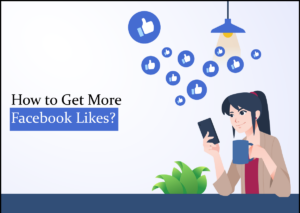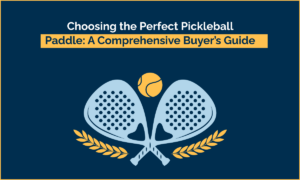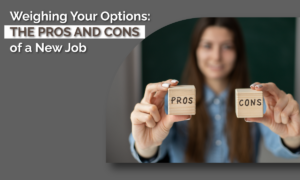Psychology Professor Is Going Viral for Debunking TikTokers Sharing ‘Facts’ That Are Completely Made Up
Mental health is a sensitive and critical topic, which is why you shouldn’t trust anything about it on the internet.
There are a lot of people who lie and fabricate mental health facts on social media. It is healthy to be aware of one’s mental health issues, but when it comes to taking advice on such topics, you should trust a professional.
Dr. Inna Kanevsky, who is a psychology professor, is debunking psychology myths is her own TikTok videos.
On TikTok, a psychology professor from San Diego Mesa College dismisses psychology false news in a funny yet informative manner. Her videos have attracted a roughly one-million-strong audience on TikTok. She is even popular on Reddit.
Dr. Inna has stated the issue “It’s most certainly a misleading, unsubstantiated assertion if you read phrases like “Psychology says,” “Psychologists say,” “Research indicates,” and the like, without mentioning specific studies or psychologists.
However, it is a good practice to dig up any assertion about psychology, and not just psychology, to discover where that claim came from. It’s unlikely to be genuine if it’s a blog, a Reddit thread, a press piece that doesn’t reference or connect sources, a ‘medical’ website that’s also not backed by research, or something similar.”
Table of Contents
#1
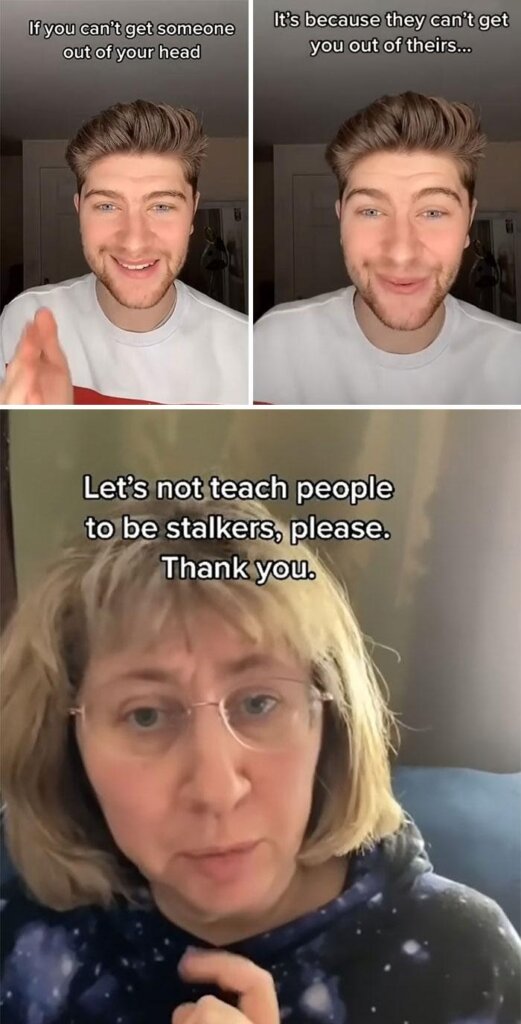
This isn’t a psychological fact at all. Because there is no way to scientifically test or prove it. The fact is that It’s just something that people say because they heard someone else say it – which was only an assumption so in reality there is no way to prove this is actually “true”.
A huge number of people use TikTok to explain mundane myths like this which have no evidence. The worst part is; a large audience also believes these facts and myths.
#2
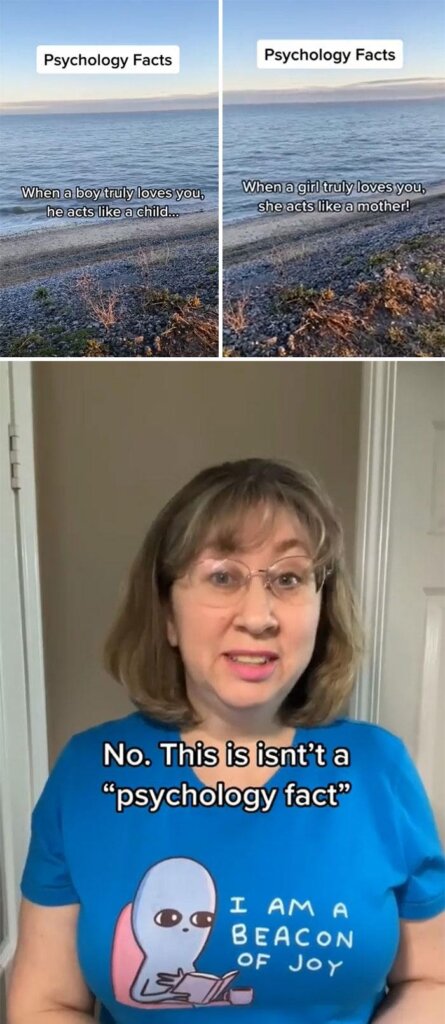
Professor first began making videos on TikTok for her students. Then she discovered the sea of false information about psychology and decided to address it. She thought it would be irresponsible to not address such false claims and decided to do so by presenting statistical evidence backing up any claims she discusses in her simple, straightforward manner. Psychology seems like an attractive subject to a lot of people, which is why not everyone knows the importance of statistical evidence behind such claims.
She created Youtube channels titled “Psychology Posts” to teach not only psychology at a higher level but also how such claims are validated through statistical evidence if applicable.
#3

Here are the three signs that you shouldn’t be talking about psychology on TikTok.
1: You are exploiting other people’s mental health for your own clout.
2: You do not provide any evidence for any of your claims.
3: You actively block people who ask you to provide evidence for your claims.
Please stop. Thank you
#4
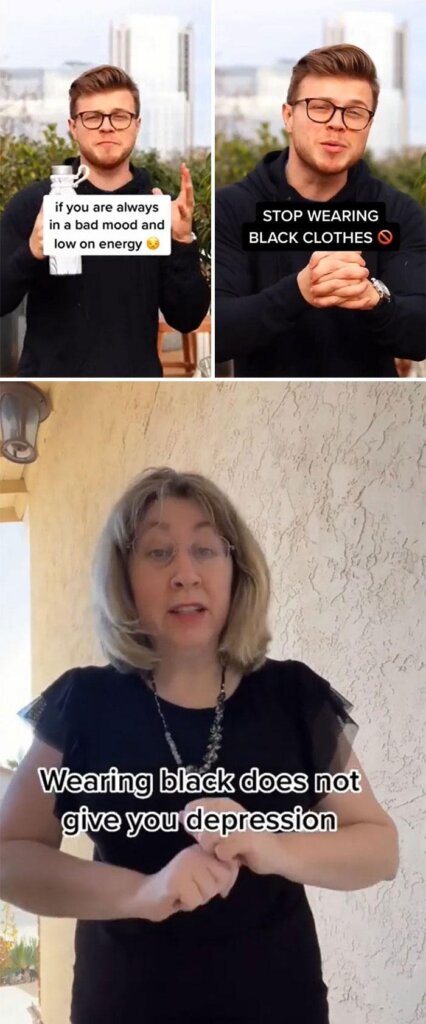
This is the funniest of them all. Wearing black will not make you feel depressed. There isn’t a single piece of evidence to suggest that it does. If there isn’t any “latest science,” don’t state “according to brand new science.” And the science just does not back up this assertion. There is no such thing as “soft” or “hard” science. There is no science involved at all.
There are several myths about black clothing’s effects on mood, even though tons of evidence does not support the assertion that wearing black in any way will make one feel depressed. For starters, there aren’t different types of science, just hard science, and soft science. There isn’t any evidence to back up this theory; it’s all superstition and hearsay.
#5

This is your reminder; do not reduce the names of brain parts like this. It will make you look like an idiot. When you claim to provide information on TikTok or any other social media, do thorough research.
Because there will most likely be competitors in a similar field who provide more accurate details and more relevant information than yourself, so we kindly ask that you do thorough research before posting anything online.
#6

Please don’t use psychological research to explain your sexism the next time you defend it. This nonsense is not supported by any psychological studies. We all know this implies it’s perfectly fine to disrespect women if you do it in a seemingly harmless way, but we’d prefer it if you were honest about your unethical behavior instead of using authority-like terms & failing to back them up with facts. Just admit that you hate women and go home. No need to target women for having fun.
I thought that you knew what you were talking about. However, after having properly and carefully reviewed this content and in comparison to the current understanding of serotonin by neuroscientists, the general public and the medical field at large, it’s evident that not only are you misinformed about serotonin for numerous reasons but also because of your statements about how it works. This is unfortunately something quite common among people who proclaim to understand neuroscience but really know next to nothing.
#7

When I saw this, I was very happy because I assumed the next sentence would be “I’ve subsequently learned that serotonin generated in the gut is used right there in the gut to regulate intestinal motility.” It serves numerous roles in our body and does not pass the blood-brain barrier.
#8

No, according to psychology. Don’t even get me started on the one that says “If you dream about someone, it implies they love you.” I’m not sure how you are meant to find scientific proof for this. If they’re laughing and staring at you, it’s probably terrible news for you. However, this is not always the case. In our world, not everyone is a bully.
Here’s the deal: Psychology is not about facts and evidence. Every psychology textbook will re-iterate that psychological facts are not a set of objective truths regarding behavior, but rather a set of theories used to make sense of behavior. So any psychology “fact” you read online is either completely made up or most likely written for entertainment value so don’t take them too seriously!
#9
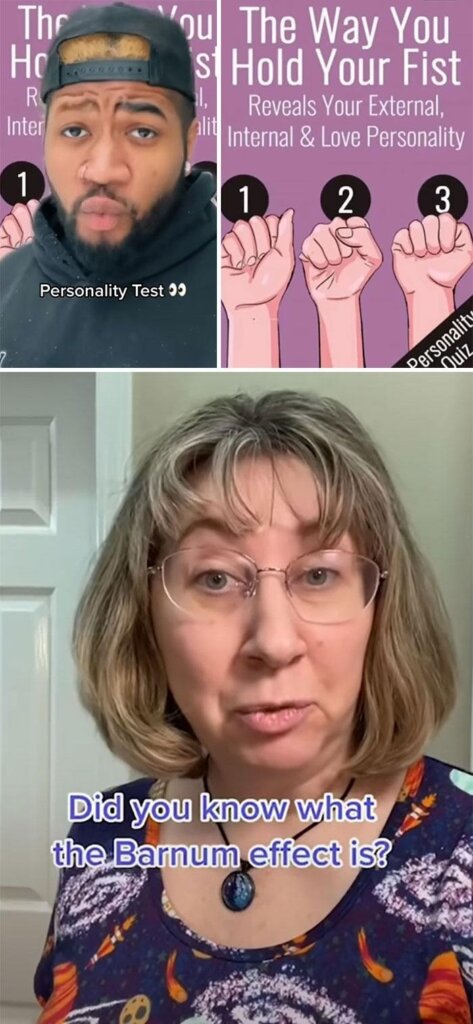
Are you familiar with the Barnum effect? Because of the Barnum effect, many of these alleged personality tests, and there have been plenty of other materials that “tell you your personality,” or claim to work, are available online.
The Barnum Effect, also known as the Forer Effect, is a psychological phenomenon in which people feel personality descriptions apply to them particularly (more so than to others), despite the fact that the description is really loaded with information that applies to everyone. Barnum effect also comes into play when you read your horoscope.
#10

The focus would be on statistics rather than psychology… But it would still be incorrect. You know no one when you’re 16, you’ve never been in a relationship, and the few individuals you do know will be forgotten quickly.
Fact-checking every single news story we hear would be tiresome. In fact, populists rely on this level of skepticism to persuade us to be cynical, because when we question whether we can know the truth even when it is there in front of us, we are more vulnerable to their manipulation. So, when it comes to such facts, better do your own research.
#11

Your sleep position doesn’t justify anything and doesn’t describe anything about you. You sleep on your left because you enjoy it. That’s it. End of story.
#12

Another wanna-be dude on TikTok putting out force information. He claims that if you were the first to notice the flowers, you are careful, modest, and timid. Professor clarifies that this is not the case. It has nothing to do with that at all. This is nothing more than a figure-ground illusion. There are a lot of people like that. There are no personality tests in any of them. Personality tests are not based on perceptual experiences.
#13

This TikToker explains how to tell if someone is narcissistic at a glance only. But the professor has explained that when they teach you a really easy technique to detect if someone is narcissistic or psychopathic, you’ll know which psychological ‘professionals’ on TikTok to avoid. To consider someone a psychopath or a narcissist you have to do a proper clinical diagnosis. These quick ways are just stereotypes and a hoax.
#14

It has been scientifically established that you can alter the way you appear and heal yourself from sickness by changing your thinking. No. For two reasons, it is not “scientifically verified.” One point to consider is that science does not “prove” anything. We support ideas in science using data obtained through testing hypotheses; yet, we do not “prove” anything because the next research may reveal that your hypothesis was erroneous and has to be changed. No, scientists don’t use the phrase “scientifically proved.” And epigenetics isn’t what you think it is. It’s magic, not epigenetics, that you’re discussing. Epigenetics processes can modify your genes based on your environment, but it won’t have the consequences you say, and it hasn’t been proven in any research to have the impacts you claim.
#15

This is a friendly reminder that perceptual phenomena are not the same as personality tests. These aren’t personality assessments; they’re figure-ground illusions. They only make statements about perception.




